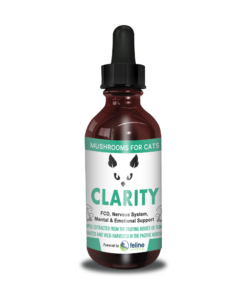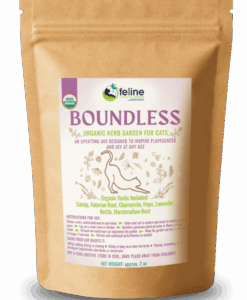Cats get dandruff too! Just like humans, cat dandruff can be uncomfortable and itchy. There are two main reasons cats will develop dandruff, so I’m going to address them below with tips on how to help resolve the issue.
Why do cats get dandruff?
The two most common reasons cats get dandruff are under-grooming and nutritional deficiency.
- Under-grooming happens when cats are either sick, old or fat (to be blunt). Cats that are sick often don’t feel like grooming themselves… so they just don’t. Older cats can have joint issues that cause pain when grooming certain areas of the body, so they might only groom part of their body and leave the rest to develop dandruff. Obese cats often can’t get to all the areas of their body they need groomed.
- Nutritional deficiency is very common in cats that are fed processed dry foods. These foods are void of the digestive enzymes and omega 3s their bodies need to keep a healthy coat. The health of the hair follicle is directly proportional to the overall health of the cat. When a food is cooked it kills the enzymes and omegas that are present in fresh, raw food. Without these nutrients, our cats coats suffer and cat dandruff occurs.
How can I help stop the cat dandruff?
- Help groom your cat. Some cats need baths, so if you can bathe your kitty, more power to you. Spend time checking out your cat’s coat and find the areas of his body that he’s under-grooming. Use a damp brush and groom those areas for your kitty. Even better, take a flea comb and brush the coat backwards. This not only helps the dandruff, but it helps release toxins from the skin.
- Use supplementation in your cat’s meals. Digestive enzymes (link below) and omega 3s (we like krill oil) are simple additions to your cat’s food and will supplement the nutrients missing from their processed food. Feeding a species appropriate fresh food diet will also help improve your cat’s skin and coat.
Digestive Enzymes for Cats




Recent Comments